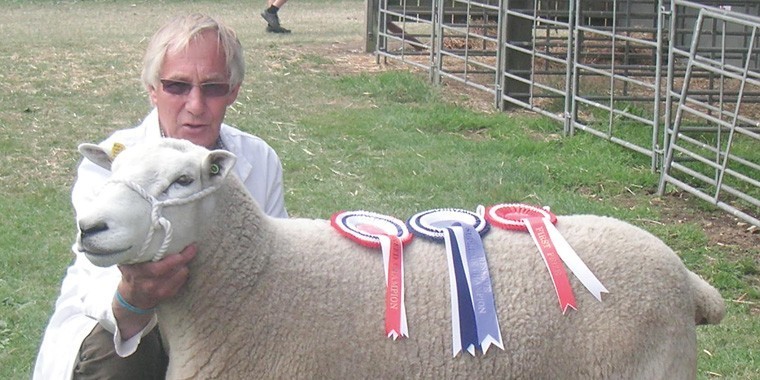After the events of this week and Theresa May’s stated desire for a “hard Brexit” and the UK’s fairly rapid removal from both the single market and the European customs union, I make no apologies for including, in full, last week’s press release from the National Sheep Association (NSA), simply because I think it makes the point for sheep farmers very clearly and I see no point in reinventing the wheel.
“At a time when uncertainty among farmers is at an all time high ahead of Brexit negotiations, the NSA does not accept recent comments from Theresa May and other MPs as being helpful. In representing its sheep farming members, the organisation does not support the UK walking away from the single market being used as a negotiating position within Brexit negotiations.
“NSA believes an immediate move away from the single market at the point of departure from the European Union could be disastrous to UK sheep farmers, with a devastating impact on the UK’s agricultural sustainability, environmental protection and rural communities and infrastructure.
“Phil Stocker, NSA chief executive, says: “On average, 30-40% of the total lamb crop produced and mainly processed in the UK is exported. With some 96% of this output going to countries within the EU, any loss of access or tariff placed on this, coupled with the absence of alternative trade options, will not only cause huge disruption to trade but an almost inevitable fall in farm gate prices.
“If this were to happen at the same time as the industry is facing extensive uncertainty around farm support payments, the potential impact on the UK sheep sector would be crippling. The UK simply cannot afford to leave the single market and pass any costs of tariffs back to the agricultural industry until alternative and workable trade deals are developed elsewhere. Wider, global trade development at a scale to replace what we have with the EU is an extremely long term goal that needs to be discussed in the context of a long transitional period if we were to leave the single market.
“NSA understands the need for a tough negotiating stance, but our exit from the EU needs to be done with a clear vision for the future so that businesses can plan and adapt. Sheep farming, like most farming sectors, is a long term activity where decisions taken today may take years to come to fruition. A two year EU departure with an immediate departure from the single market is nowhere near long enough to steer the sheep farming industry through one of the most seismic changes we could possibly face.
“As a nation, UK sheep meat consumption figures are roughly in line with domestic production, with export and import figures almost balancing at present, in order to cater for seasonal fluctuations in supply and balance demand for certain carcase cuts.
Mr Stocker continues: “Loss of access to the single market and the potential market disruption this would cause should prompt questions about self sufficiency, an aspiration that might make sense but would require significant restructuring of the industry. If we were to strategically aim for greater self sufficiency, the high level of welfare and environmental standards expected from UK producers would need protection from cheaper imports. The UK needs to be able to compete with other nations, and we must not fall into the trap of exporting environmental, welfare or social problems to the extent that they are simply out of sight.”
The second whammy comes in the shape of the news that both the UK and EU have clearly outlined their desire to enter into free trade negotiations, albeit with conditions attached as far as the EU is concerned, with New Zealand. Part of any such agreement would see the removal of import quotas for New Zealand lamb – and New Zealand can produce good lamb, relatively cheaply, without a lot of the environmental and welfare constraints that we face, constraints that are by and large home bred and nothing to do with the EU.
At the same time we will almost certainly see the removal, considerable reduction or significant change in farm subsidies. All of the indications coming from government are that access to support will be based upon participating in measures that have a perceived “public good.” Quite what “public good” is supposed to mean is not quite clear, but it does not seem to include food security – which for an island nation where home production provides less than less 60% of our food consumption seems a little strange to me.
I have no problem with the removal of farm subsidies. In the long term, as an industry I am convinced that we would be a lot leaner, fitter, more innovative and more efficient without the distortions generated by subsidies. But there does need to be an effective period of transition. As an industry we do need to make our voices heard by those in government and the public. We need our consumers on side because they are all voters. The government can afford to ignore us, but they cannot afford to ignore public opinion. If we are not very careful the sheep industry could be well and truly hung out to dry, a sacrificial lamb on the alter of Brexit and free trade.




